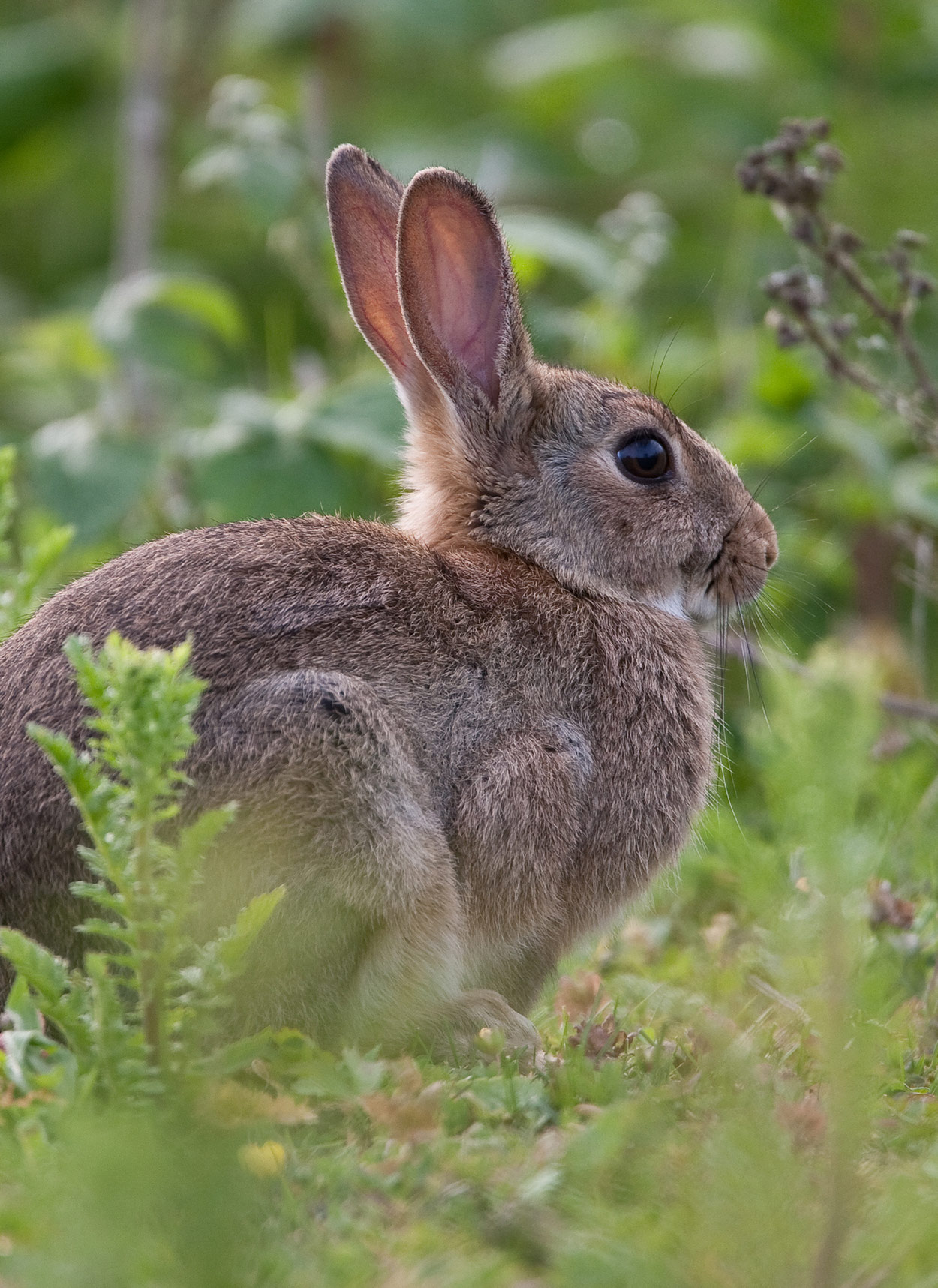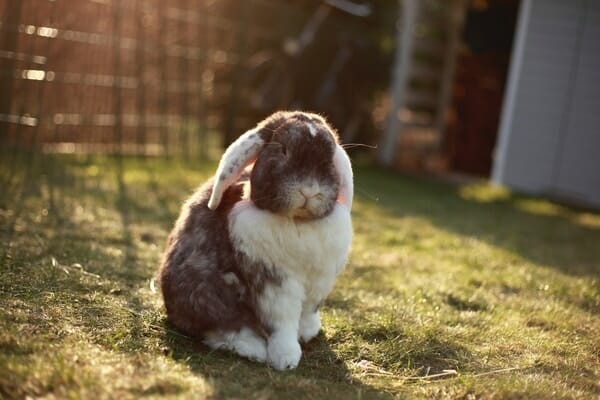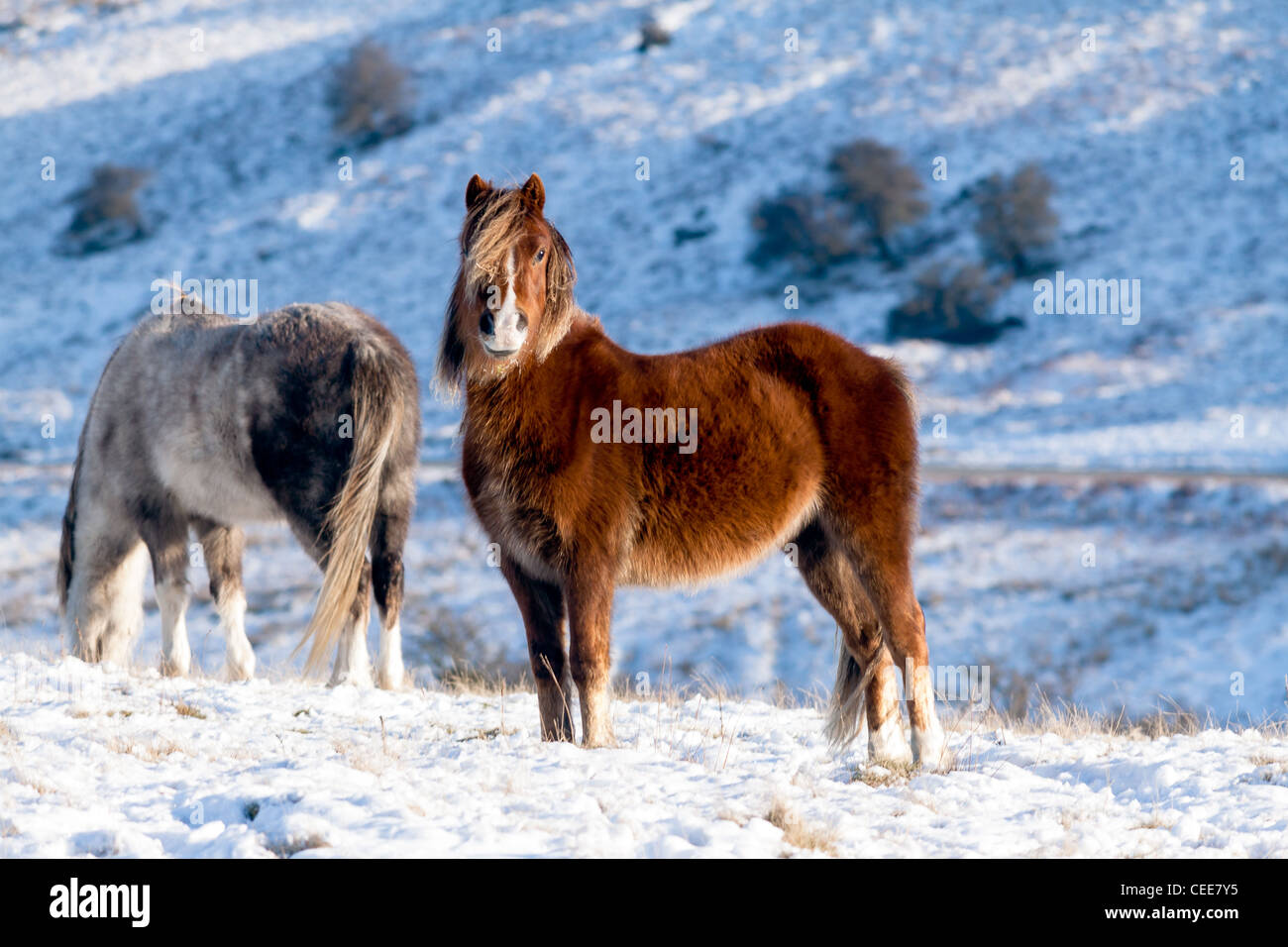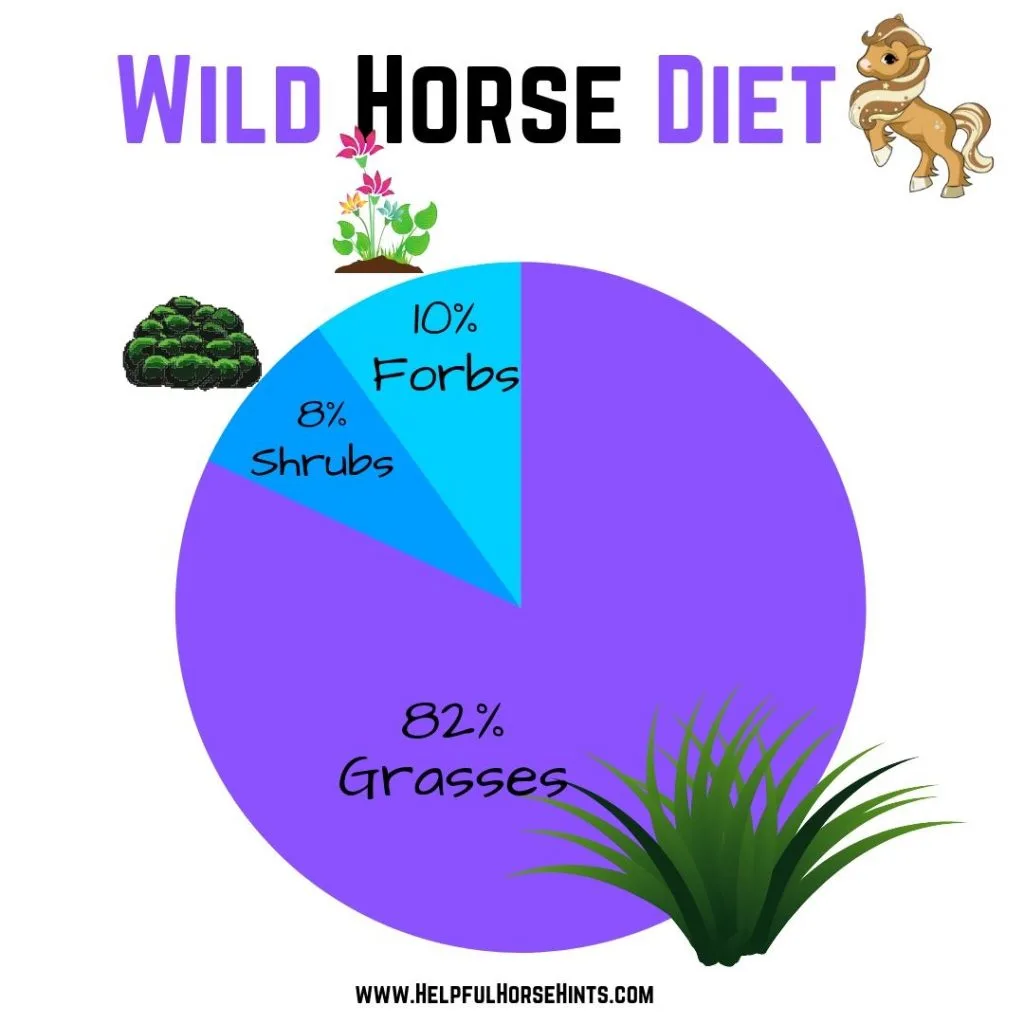Their diets primarily consist of eating grass and other ground-level plants. What Do Wild Rabbits Eat.
 What Do Wild Rabbits Eat A Guide To The Natural Wild Rabbit Diet
What Do Wild Rabbits Eat A Guide To The Natural Wild Rabbit Diet
During the winter wild rabbits forage for greenery they can find such as grass flowers leaves.

What do cottontail rabbits eat in the winter. Some good plants include berry bushes such as raspberry or blackberry plants. In Harsh winter wild rabbits mostly depend on the buds bark twigs or the greens left in nature. Once the weather gets cold they eat tree bark twigs branches and pine needles.
Rabbits are almost 100 percent herbivores meaning their diet is made up of plant material. When feeding cottontail rabbits typically only use their nose to move and adjust the position of the food that they place directly in. During the winter much of the foliage they snack on during the warmer months is either gone or covered in snow.
During the colder months when rabbits eat more barks and twigs you can make a small pile of these. If spotted they flee from prey with a zigzag pattern sometimes reaching speeds of up to 18 miles 29 kilometers an hour. During the summer months cottontails primarily eat grasses legumes succulent annuals weeds as well as the occasional garden vegetable.
Rabbits have almost a 360-degree vision and are able to see behind them. Cottontails do not hibernate but their diet during the winter months is much less appealing. In the summer they forage for leaves stems and flowers of grasses sedges herbs and even garden crops.
Plants to feed rabbits in the winter If youre thinking about wild rabbits in the winter youll want to provide them with woody and twiggy bushes and shrubbery that theyll be able to eat. The bark of young trees and shrubs is. But if you want to feed wild rabbits in your backyard give them foods that are safe and healthy.
You can feed a. The winter diet includes small grains as well as twigs bark and buds of shrubs and trees. After that they eat tree bark twigs and branches.
What do rabbits eat in the winter. Cottontail Rabbits Cottontail Rabbit Pictures Cottontail Rabbit Fa. They have been known to eat.
Despite that they have one blind spot which is located right in front of their nose. During the warmer seasons they eat a plant-based diet such as grasses clover leafy weeds wildflowers tree seedlings and other vegetable plants and flowers. Unless its a freezing winter most rabbits survive fine all winter.
Cottontail rabbit fecal matter resembles small pellets and occasionally rabbits will eat their own feces in order to gain additional nutrition missed in their initial digestion. In winter their diet becomes a bit coarse and consists of bark twigs and buds. Most cottontail rabbits eat more than 100 different species of plants during their lifetime.
We found rabbit in our yard lawn or in the garden in the winter especially. During the day cottontails often remain hidden in vegetation. The wild rabbits generally eat the fresh grass weeds clover crops from fields wild vegetables fruits and flowers in the warmer season.
These rabbits consume fallen fruits such as apples or fallen corn in autumn. They also eat their cecotropes partially digested food thats extremely nutritious. However after ice and snowfalls they cannot access these food sources.
During the winter rabbits take in more wood-based food sources such as tree bark twigs and conifer needles. They focus on eating twigs and bark during the winter. This could be due to different nutritional needs that are present during the cold winter months.
In the summer months cottontail rabbits prefer to eat mostly grass and weeds. Timothy and oat are the types of hay that the wild rabbits can eat. In winter cottontail rabbits may consume twigs buds and sprouts.
Rabbits forage for food until the plants freeze. Pellets with seeds are a good nutritional source for the rabbit. In the summer when rabbits like to eat grasses and weeds leave an area of your lawn partially uncutthis allows grass andor weeds to grow up and can also provide a sheltered area for the wild rabbits to eat.
During times in the winter with little snow rabbits eat grasses and other plants they can find. Winter Diet of a Young Cottontail Rabbit. If the wild rabbits feel safe in your yard do not be surprised if they eat grass all day.
Rabbits frequently use woodchuck skunk or badger burrows during winter months and sunbathe in any nearby sunny spots. Much to the chagrin of our hard-working grounds staff cottontail rabbits often resort to eating bark from shrubs young trees and other woody perennial plants in order to survive. Wild rabbits typically live within a 5-acre area.
So what do they eat. They will eat the woody parts of plants including twigs and bark as well as any small buds they can find.
Can rabbits live outside during winter. Lionheads and other dwarf rabbits for example need to come indoors when the temperatures get below 50 degrees Fahrenheit or live in a very well insulated and possibly heated large house.
 Can Pet Rabbits Live Outside How To Keep Your Bunny Safe Outside In Summer And Winter Exoticdirect
Can Pet Rabbits Live Outside How To Keep Your Bunny Safe Outside In Summer And Winter Exoticdirect
Even in the winter the rabbit is going to be able to live outside.

Can dwarf rabbits live outside in winter. The rabbit is built to live outside. What temperature is too cold for rabbits How to keep your rabbit warm in winter How can I tell if my rabbits too cold or too hot. If your rabbits guinea pigs or ferrets live outside you can make their winter a bit more comfortable with these simple steps.
Rabbits can live outside in the winter. Although I live in mild Portland Oregon we usually get a few storms of icy and snowy weather in the winter. It is important rabbit owners do whatever they can to ensure their pets are safe and warm during cold weather snaps as domesticated rabbits are not as efficient at keeping themselves warm as their wild counterparts.
Yes they will get cold on occasion but they can still live outside and it isnt going to make them sick. They spend the winters indoors. Wild rabbits are also better equipped to.
There are just too many variables - the weather is unpredictable and predators always seem to find a way to get into whatever hutch or cage people keep them in. Yes but you must revamp its hutch to insulate as much heat as possible. Yes but you must revamp its hutch to insulate as much heat as possible.
Can rabbits be kept outside. Lived in Kingston ON Answered 1 year ago I dont recommend keeping any pet rabbits outside especially dwarfs. Wild rabbits warrens are insulated as they are underground which prevents them dropping below.
Rabbits cope well in moderately cold temperatures as long as they have a warm dry area to shelter. It can feel cruel to leave rabbits outside during the winter months though. It has been built to tackle all sorts of temperatures.
This is just natural behavior during the winter. We have two German dwarves essentially the same breed but speak a different rabbit language and our vet was quite insistent that they shouldnt be permanently outside below zero. If you see a pet rabbit or have a rabbit in your backyard acting in this matter there is no cause for alarm.
If you have an outdoor rabbit it is important you take necessary actions to winterize your rabbits living quarters. Considering this can Dwarf rabbits live outside in winter. If you live in a colder area rabbits could be a very good livestock choice for you as bunnies are pretty easy to take care of in the cold.
If keeping your. Can rabbits live outside all year round. However weve let them run around in the snow a few times and they love it for a few minutes without getting ill.
Bring them inside in the worst weather. For rabbits living entirely outside there is good news for rabbit owners. This is why the rabbit is such a prominent animal in most parts of the world.
Rabbits may need to eat more to maintain their normal body temperature Outdoor-Only Housing. If your rabbits live outside then its important to prepare their accommodation for winter. Can Rabbits Live Outside All Year Round.
Keeping rabbits warm outside in winter. During the winter rabbits might not be as active or their appetites might even drop off but these are just amongst a few of the changes that rabbits can go through during the winter. In the wild rabbits live in burrows underground usually in groups to keep themselves warm.
Rabbits can easily tolerate the outside temperatures Cons of Outdoor Building Housing. A porch or conservatory is perfect for them because they wont get too hot. Rabbits have adaptations that help them survive the cold such as thick fur coats and fur pads on their feet.
The condition of your rabbits current enclosure will depend on how much work you will need to do to winterize it. Rabbits often live outdoors and theyre content this way. Their cage needs to withstand the snow and cold the winter will bring.
Can pet rabbits live outside in winter. When the temperature drops and the wind is icy they are surely freezing. Risk of waters freezing if below freezing temperatures outside.
Rabbits are equipped to withstand even below freezing temperatures as long as two things are assured they are kept out of the wind and can. They are incredibly hardy. Rabbits thrive in cold temperatures.
All rabbits be it wild or pet cope somewhat well with colder temperatures as much as there is a dry sheltered place available for them to hide when the weather is freezing. You also need to keep changing its water with lukewarm water every two days. If temperatures drop bring them inside.
That being said rabbits that are pregnant old andor sick should not be left outside over the winter months. If youre not able to bring them into your home you could keep them in a car-free shed or garage. Its only natural to worry about your bunny staying safe during the winter season.
Also not ever rabbit breed grows a sufficient amount of winter fur. They cease shedding during the fall and grow thick fur that keeps them warm in the winter. Rabbits can live and survive outside in winter as long as you build a hutch for them that will keep them warm and dry.
Make sure your rabbits arent cold.
I dont understand - the hutch wasnt even unlocked and the rabbit. How To Care For Rabbits In Winter Make Sure They Have Water.
 Can Rabbits Live Outside During Winter Petrabbits Org
Can Rabbits Live Outside During Winter Petrabbits Org
Crocks stay unfrozen longer than water bottles because the spout on the water bottle freezes quickly.

Can domestic rabbits stay outside in the winter. The kits were born in early november and had zero issues outside in the cold. They need exercise every day and being able to move around also helps them to keep warm. It is important rabbit owners do whatever they can to ensure their pets are safe and warm during cold weather snaps as domesticated rabbits are not as efficient at keeping themselves warm as their wild counterparts.
I would invest in a heat lamp for them. We originally built a hutch for our first rabbit but wanted him to have a friend. Keeping rabbits warm outside in winter.
Hutches or cages do not provide enough protection to make it safe to leave the rabbit outdoors 24 hours a day. I am not a fan of rabbits in hutches alone outside but you say yours goes out into the garden so i am sure he wont be too bored until the snow melts. If you are a rabbit lover you need to implement better ways to protect your pet all year as the seasons change.
Can rabbits live outside during winter. If your rabbit is in an outhouse garage or a shed and you decide to use a heater to heat the space make sure your bunnies are away from the cables and cant get burned or overheated. Never release a pet rabbit outside.
Read our advice to help keep your rabbit warm happy and safe from danger during the cold spell Rabbit winter guide. What is the greatest outdoor risk for rabbits. Rabbits can easily die in hot weather from heatstroke and they are in danger of freezing or coming down.
Indoor rabbits will benefit from time outside so they can get some fresh air and enjoy some fresh grass. If you live in a state that allows you to hunt rabbits outside of fall and winter consider yourself lucky. Rabbits can live outdoors in properly constructed sheltered hutches which provide protection from the elements in winter and keep rabbits cool in summer heat.
Consider creating sub-compartments within the hutch so they can nestle in or provide suitably-sized open-ended tubes or pipes that allow them to shelter without getting stuck. Some basic DIY jobs can help fox-proof the rabbit hutch. These occur primarily at night but can also happen occasionally in the daytime.
However domestic rabbits kept outside do not have the protection of a burrow so are exposed to low temperatures rain wind snow and draughts. Unfortunately every year thousands of rabbit guardians decide to abandon their pets in the great outdoors. In addition to climatic conditions winter poses a number of challenges for domestic rabbits including less readily available grass and leafy.
Now if you live in the south and the weather is mild in the winter it is not as bad to leave your rabbit outside. Can I still take my indoor rabbits out to the garden in winter. Releasing a domestic animal into the wild is a crime.
The House Rabbit Society receives many calls every week from baffled people whose rabbit died during the night while confined in a hutch. If the weathers particularly bad move the hutch into an unused garage or shed if its possible. Wild rabbits do well during winter by burrowing but that option isnt available to many domestic rabbits.
The temperature is kept relatively constant. The greatest threat is attack by predators. Pets are a big help to us in our efforts to cope with life and its ups and downs.
A young rabbit marinated in olive oil lemon juice thyme salt and pepper and grilled over hot coals makes for a fantastic summer meal. However the sudden change in temperature when going from a warm house to a cold garden can. Its amazing how dangerous heat is to rabbits but they can survive with zero issues in freezing temperatures.
Animals can play a major role in our daily activities and science suggests that we interact with animals on an average of five times a day. Wild rabbits are also better equipped to. Rabbits are cold.
Give lots of food and drink. They may believe the rabbit can survive and thrive in the wild but this is an inaccurate and deadly assumption. We ended up letting them out after a week or two and would never put a rabbit in a hutch again.
Take Precautions Before the Onset of Winter. We lost the first rabbit. Also the rabbits can lick the.
I have two rabbits now they were born in june and i am really concerned for them to be outside but i know i cant have them inside running about because i have cats too and although they do not take much notice when i do bring them in when the children play with them i still cant trust them and do not really want to get a inside hutch as they are outside rabbits really. The biggest concern for rabbits in cold weather is keeping their water liquid. In the wild rabbits live in burrows underground usually in groups to keep themselves warm.
Keeping rabbit hutches warm in winter is very important hutches should be positioned so that wind rain snow or sleet cant blow in. You can also buy microwavable heat pads made specifically to keep rabbits worm in the winter and put them under heaps of hay or straw. Most people choose to carry out warm water twice a day to their rabbits.
Your rabbits should have free access to their run at all times even in the winter and never be locked in their hutch. Keeping rabbits outdoors comes with all manner of challenges but most relate directly to the weather. Please give them lots of bedding and stuff to cozy up in theyll most likely want to make a good nest.
The hutch or place you keep your rabbit in must be protected from the wind and covered. Last winter we had quite a bit of snow with temperatures around 10 degrees and they loved it. Ment to add he is kept outside because he makes my athsma worse I would prefer him inside.
It could be in the form of long stem hay chopped hays forage based cubes or combinations thereof. Each band of horses has a lead female called a mare.
 Wild Horses With Long Winter Coats Stand And Eat On A Snow Covered Moorland In Some Later Afternoon Winter Sunshine Stock Photo Alamy
Wild Horses With Long Winter Coats Stand And Eat On A Snow Covered Moorland In Some Later Afternoon Winter Sunshine Stock Photo Alamy
As night falls a lone horse paws through deep snows in the Ochoco National Forest in search of something to eat.

What do wild horses eat in the winter. Wild horses eat grass and other plants. Horses have survived many years in a variety of different clients so they do know how to adapts. Apart from the lack of exercise the lack of social life and other basic needs that have not been met warm stables destroy horses thermal regulation in winter.
During the winter if pasture grass is limited you need to supplement a. They also usually stay reasonably close to water as it is essential for survival. Wild horses survive by grazing for food as they are herbivores eating grasses and shrubs on their lands.
It is estimated that wild horses can graze for 15-17 hours per day. True wild horses went extinct in North America roughly around 10500 years ago. Horses like to eat fresh green grass but they can also eat hay or straw.
But most wild horses do eat a lot of forbs which come packed with vitamins minerals and moisture and probably taste great too. Book your tour online today. Feeding horses during any season can be difficult but winter certainly comes with the biggest challenges.
Just like shearing and covering which I am neither a fan of either individually or in combination. They should also have access to salt at all times and unlimited ice free water. Winter fur today how blankets and stables affect thermoregulation.
All of this makes sense from a horse health point of view. Horses adapt and their coats become thicker so they can survive in most all frigid temperatures. They should have dry fresh hay available at all.
They can survive as long as they have access to enough. They drink water from seeps springs streams or lakes. Adults eat about 5 to 6 pounds of plant food each day.
They drink water from seeps springs streams or lakes. A good way to supplement extra energy for horses that need it is to slightly increase the amount of hard feed or alternatively add in a high fat feed such as linseed. Depending on the horses body condition a healthy horse can go quite a long time without eatinga month or soprovided he already had a great amount of stored body fat.
The issue really comes down to calories burned and if they have enough weight on them to keep healthy. Wild horses graze on large areas of land eating grass the seed head of grasses and other edible shrubs and plants. And yet these horses manage to survive quite well during the winter season.
It would be difficult for horses in the wild to survive by only eating forbs there just arent usually enough of them to sustain a horse when compared to bushes shrubs and grasses. The primary energy or calorie source for horses is hay or pasture ie. Wild horses eat grass and other plants.
Of course there are exceptions. In winter horses living in the wild would find dead grass to eat or any available vegetable matter even if it is buried. Linseed is ideal as its palatable low starch and provides quality protein which may be lacking in forage or pasture during the winter.
They are not groomed to shiny perfection. Working horses may require up to an additional one-half pound per 100 pounds of body weight per day depending on workload to maintain weight during cold weather. Feeding horses in the winter routine.
Typically horses eat grass. In general feeding an additional one-quarter pound of grain per 100 pounds of body weight daily to non-working horses can provide adequate calories during cold windy and wet weather. Forage and fiber sources.
What do wild horses eat. So how do horses survive in the the winter though. Before such horses freeze they should of course be.
To Book an Adventure your whole family will enjoy. If cold stressed the addition of higher calorie supplements such as grain-based concentrates or high fat. Adults eat about 5 to 6 pounds of plant food each day.
How does horse get its food. They tend to live near fresh water supplies. High-quality hay should be the staple of any winter diet especially for horses that are turned out a lot.
The horses eat snow for a water source. Horses expend significantly more calories keeping warm in the winter than they do any other time of year. This means they only eat vegetation.
They grow an excellent winter coat that insulates them and keeps them warm and dry down to the skin. Horses eating forage like hay and grasses stay warmer because digestion of hay which takes place in the hind gut keeps them warm. Like all animals horses need energy to survive and that energy is provided as calories from the foods they eat.
In all scenarios in winter months horses should be given at least 15 to 3 of their body weight in some form of forage. In winter wild horses paw through the snow to find edible vegetation.
ads
